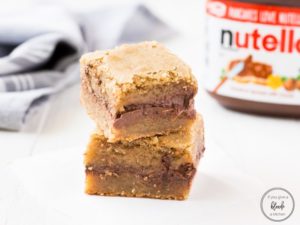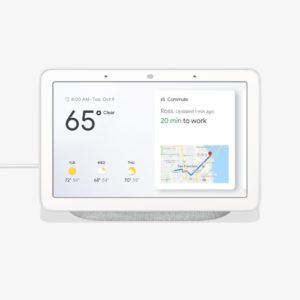The truth is, selling a home can be an inconvenience, create stress, and lead to thoughts of uncertainty. However, this can be minimized if the proper preparation is taken to make well-thought-out decisions. Whether you’ve sold your property before or selling your first, there are things you need to know before listing your home for sale.
The experienced agents at Vincent Properties have some great tips and insight to share!
5 Tips Before Listing Your Home
 #1- “Consider a home inspection before listing to find out if there any unsuspected surprises about the home. Sellers might not know everything as houses can be mysterious...” suggests Stephen McDaniel, “…especially for older homes.” There can be issues happening “behind the curtain” which could cost the sale of your home or used as leverage to bring the price down. Remember for all major repairs; please provide your Realtor® with documentation that shows the problem was fixed by a licensed professional.
#1- “Consider a home inspection before listing to find out if there any unsuspected surprises about the home. Sellers might not know everything as houses can be mysterious...” suggests Stephen McDaniel, “…especially for older homes.” There can be issues happening “behind the curtain” which could cost the sale of your home or used as leverage to bring the price down. Remember for all major repairs; please provide your Realtor® with documentation that shows the problem was fixed by a licensed professional.
 #2- Take the home out of your house…De-Clutter, Clean, and Stage When potential buyers come to view your home, they need to be able to envision themselves living there. “I can see us having breakfast in this nook on Sundays” or “Imagine opening Christmas presents by the fireplace.” You can think of this as a preliminary de-clutter session before you move (have you heard of Marie Kondo?). Renting a storage unit may be helpful while you downsize during the of sale your home. Your agent might suggest for you to consider professional staging of the house, which is a method to best showcase the floor plan and maximize the space.
#2- Take the home out of your house…De-Clutter, Clean, and Stage When potential buyers come to view your home, they need to be able to envision themselves living there. “I can see us having breakfast in this nook on Sundays” or “Imagine opening Christmas presents by the fireplace.” You can think of this as a preliminary de-clutter session before you move (have you heard of Marie Kondo?). Renting a storage unit may be helpful while you downsize during the of sale your home. Your agent might suggest for you to consider professional staging of the house, which is a method to best showcase the floor plan and maximize the space.
• What’s that smell? While you’re picking things up, start to consider how your home smells. Do you have pets or is there a slight damp smell? Your home’s aroma will be one of the first impressions it will make to prospective buyers. Don’t forget to clean up the pet hair!

 #3- Update, not make-over. Significant changes such as knocking down walls or installing state of the art windows will not provide the monetary return you might think. Updating to new {clean} cabinet hardware, door handles, fresh paint and grout will provide a better payout in the end. Making the house appear fresh, clean, and well maintained are better impressions than hi-tech or modern.
#3- Update, not make-over. Significant changes such as knocking down walls or installing state of the art windows will not provide the monetary return you might think. Updating to new {clean} cabinet hardware, door handles, fresh paint and grout will provide a better payout in the end. Making the house appear fresh, clean, and well maintained are better impressions than hi-tech or modern.
• The exception to this “rule” is the kitchen. Here you were thinking you were selling your whole entire house, but in reality- you’re selling your kitchen! Most people spend their time in the kitchen, between food prepping, cleaning, family meetings, and entertaining. Research shows that an out of date kitchen (i.e. appliances) can be costly in negotiating the sale price of your home. Typically, sellers see about an 85% return on investments made in the kitchen. Have a dining room table? Set it with a nice dining set, especially for listing photos.

•Start with the exterior. Known in the real estate industry as curb appeal, the outside of your home is the FIRST impression. Make sure your driveway is easy to access (no potholes!), the mailbox isn’t leaning at an angle, and the lawn is trimmed/cleared. Don’t forget to leave the porch light on to make it seem inviting and show your home in the best light.
 #4- “Research and get recommendations on different agents.” Stephen McDaniel advises you pick your real estate agent wisely because not all agents are the same. Start by asking a friend or loved one that may have recently sold/bought a home; they have first-hand knowledge which can be helpful. Secondly, take your search to the internet, using search engines specifically for real estate like Realtor.com and Zillow are a direct resource for finding qualified agents. For example, many of the clients who come to Vincent Properties are usually referred to us by a past client, but they will do a “background check” by browsing our Zillow Reviews. Lastly, we suggest rounding up 2-3 agents you feel are qualified, then conduct interviews. These face to face interactions will give you an insight into who really knows the market, how to sell, and who are just full of hot air.
#4- “Research and get recommendations on different agents.” Stephen McDaniel advises you pick your real estate agent wisely because not all agents are the same. Start by asking a friend or loved one that may have recently sold/bought a home; they have first-hand knowledge which can be helpful. Secondly, take your search to the internet, using search engines specifically for real estate like Realtor.com and Zillow are a direct resource for finding qualified agents. For example, many of the clients who come to Vincent Properties are usually referred to us by a past client, but they will do a “background check” by browsing our Zillow Reviews. Lastly, we suggest rounding up 2-3 agents you feel are qualified, then conduct interviews. These face to face interactions will give you an insight into who really knows the market, how to sell, and who are just full of hot air.
Here are some questions and information worth inquiring about during your meeting:
•”Know your agent’s marketing plan.” Jay Vincent – Your agent shouldn’t just place a sign in the front of your home and wait for it to sell. They should know how to write compelling information about your home to attract potential buyers in addition to creatively marketing it online and offline.
• Chad Vincent advises that a good agent will provide sellers with comparable properties which are active on the market and recently sold. In additional your agent should point out the differences in the comparable sales and how those factors contribute to home value.
• How long have they been a Realtor®? What is their sales record? It takes time to build a professional network, gain hands-on knowledge of the processes of selling homes, and grasp the dynamics of an evolving real estate market. This is not to say a “green” agent would not provide you with excellent service, but perhaps ask if they would be willing to co-broke with a more experienced agent and make sure they come from an established supporting agency.
• What is their availability and how will they communicate with you? Some agents are too big for their breeches. They take on too many clients, overbook appointments, and take days to reply to your text/email. Jay commonly refers to these agents as “contract agents”- they only call when your listing contract is up, and they want a renewal. These are not qualities of a sincere and efficient agent. An accomplished agent will never drop the ball on communicating with their client. They will provide monthly reports on the status of your property while being a resource for knowledge and reassurance.
 #5- Be realistic about price. This is probably the hardest step. You want to get the best value for your home, plus you want it to sell in a reasonable amount of time. If you overprice your home, you risk it sitting on the market for a long time or forced to consider a price reduction. If you reduce the price too often, your agent will lose negotiating power; this could indicate your motivation, whether true or false, to a buyer. However, once you have interviewed various agents and reviewed their market data and comparable sales (referring to step #4), you should have a realistic idea. A few other things to consider when pricing your home are major repairs such as a new/updated roof, hardwood floors, HVAC systems, and kitchen appliance (Tip #3!).
#5- Be realistic about price. This is probably the hardest step. You want to get the best value for your home, plus you want it to sell in a reasonable amount of time. If you overprice your home, you risk it sitting on the market for a long time or forced to consider a price reduction. If you reduce the price too often, your agent will lose negotiating power; this could indicate your motivation, whether true or false, to a buyer. However, once you have interviewed various agents and reviewed their market data and comparable sales (referring to step #4), you should have a realistic idea. A few other things to consider when pricing your home are major repairs such as a new/updated roof, hardwood floors, HVAC systems, and kitchen appliance (Tip #3!).
If you take all of these steps into consideration and utilize them, you will position yourself to have a satisfactory and successful selling experience. Knowledge is key! From here, your agent will handle the “dirty work” and will be able to guide you better.
If you have any further questions or are considering selling your property, please click here to fill out our contact form and a Vincent Properties agent will reach out to you soon!
Resources:
How to Price Your Home for Sale by The Balance, Elizabeth Weintraub
How to Interview a Real Estate Agent by The Balance, Elizabeth Weintraub
10 Tips for Selling Your Home Fast by U.S. News, Teresa Mears
10 Best Kept Secrets for Selling Your Home by HGTV


















































 Round up the kid’s and cuddle up with a warm mug of hot chocolate to look back at all the wonderful memories throughout the years. Our Marketing Assistant,
Round up the kid’s and cuddle up with a warm mug of hot chocolate to look back at all the wonderful memories throughout the years. Our Marketing Assistant,  Take advantage of this extra time of! You to-do list that keeps getting longer and when the snow melts, it will seem like you have less time to get it done- so how much time will you have to cook? Fast food meals are probably popping up on the menu but that can easily be avoided. Instead, try out this delicious recipe from Shalamar’s family cook book! Whip up a big batch of these to make multiple trays of tasty enchiladas that you can freeze and have a quick delicious meal handy whenever the clock is counting down.
Take advantage of this extra time of! You to-do list that keeps getting longer and when the snow melts, it will seem like you have less time to get it done- so how much time will you have to cook? Fast food meals are probably popping up on the menu but that can easily be avoided. Instead, try out this delicious recipe from Shalamar’s family cook book! Whip up a big batch of these to make multiple trays of tasty enchiladas that you can freeze and have a quick delicious meal handy whenever the clock is counting down.



